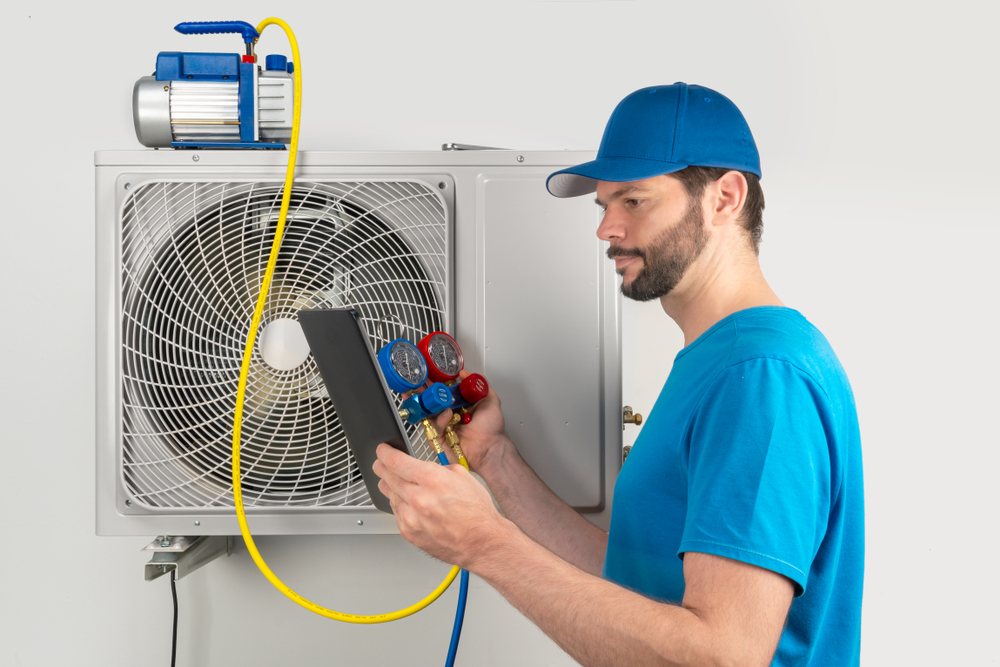Heating, commonly known as heating, ventilation, and air conditioning, plays a vital role in maintaining pleasant indoor environments in both home and corporate spaces. As you navigate through any house, you might not consider twice about the systems working silently behind the curtains to ensure that the air is at a comfortable temperature and quality. However, grasping the principles of heat transfer that govern these systems can greatly enhance our capability to manage them properly.
In this resource, we will explore into the mechanics of HVAC, uncovering how these systems work and why they are indispensable. From introductory concepts for beginners to tips on optimal maintenance and energy usage, we will review various aspects of HVAC systems. Whether you're considering an upgrade, looking to improve indoor air quality, or simply wanting to lower your energy bills, this text will provide the fundamental knowledge you need to make smart decisions about your heating and cooling systems.
Understanding HVAC Systems
Heating, Ventilation, and Heating , commonly known as HVAC, represents an essential system employed for providing pleasant conditions in indoor environments. At its heart, an HVAC configuration functions by managing the temperature, humidity, and atmospheric conditions of locations in residences and business facilities. It achieves this through a collection of integrated components that execute the necessary functions of thermal management, chilling, and breathability. Whether it’s a private setting or a spacious corporate facility, understanding how these systems operate is essential for efficient environmental management.
The main elements of an HVAC configuration comprise the heating unit, cooling unit, air exchange system, and the thermostat. Warmth generation can come from various options, including furnaces, heating pumps, or heating boilers, which create warmth during colder periods. For temperature control, cooling units or systems like chillers are utilized to extract warm air from indoor atmosphere, creating a refreshing space in the hot season. Air exchange plays a crucial part in providing clean air flows through the location, assisting to sustain air quality and remove airborne impurities.
Furthermore, adequate care is essential to guaranteeing HVAC systems operate smoothly and remain operational over time. https://www.berkeys.com/fort-worth-air-conditioning/ can pinpoint common issues such as blocked filters or freon escapes before they escalate into more major issues. Grasping how these mechanisms operate not only enables residential managers and corporate leaders make informed choices about functioning and maintenance but also empowers them to foster pleasant home and business spaces throughout the year. spintax ### Frequent HVAC Problems and Remedies
Homeowners often face a range of HVAC issues that can disrupt convenience and efficiency. One common problem is inadequate heating or cooling. This can occur due to a faulty thermostat, clogged ducts, or low refrigerant levels. To tackle this problem, start by verifying the thermostat settings and changing batteries if needed. Next, inspect and clean air filters and ensure that vents are unobstructed. If issues persist, it may be required to call a certified technician to check for refrigerant leaks or system malfunctions.
Another regular concern is excessive noise coming from the HVAC system. Noises like rattling, grinding, or buzzing can suggest various problems, from loose components to failing motors. Homeowners should first inspect the outside unit for any debris that might be causing vibrations and make sure all screws and fasteners are secure. If the noise is severe or ongoing, it is recommended to seek professional help to identify and fix the underlying problem, as ignoring it can result in more serious damage.

Finally, poor indoor air quality is an aspect that many do not recognize as directly connected to HVAC systems. Problems such as dust buildup and allergens can arise from dirty air filters or poor ventilation. To improve air quality, regular maintenance is essential, including frequent filter changes and duct cleaning. Adding air purifiers and choosing the right filters for your system can significantly enhance indoor air quality and overall comfort in the home.
Energy Efficiency and Advancements in HVAC
The HVAC industry has experienced substantial progress in energy conservation, primarily due to the rising need for green options. Modern systems are built to maximize energy use while maintaining comfort in homes and commercial structures. Innovations such as variable speed motors, zoned heating and cooling, and sophisticated heat exchangers allow HVAC systems to function more efficiently, reducing energy consumption and minimizing energy costs.
Smart technology integration is another important advancement driving energy efficiency in HVAC systems. Smart thermostats and home management technologies provide homeowners with unmatched control over their warmth and cooling preferences. These tools can learn user habits, modify settings on their own based on presence, and provide instant energy usage data, all contributing to a more optimized HVAC functioning. As intelligent gadgets continue to improve, they will play an ever more critical role in energy management.
Additionally, alternative energy solutions, such as solar-powered HVAC systems, are transforming the field. These units capture solar energy to reduce reliance on traditional power sources, offering both ecological benefits and cost savings. Geothermal heating and cooling is another creative solution, utilizing the earth's constant heat to provide sustainable climate control. As these technologies become more affordable, residents and companies can make educated choices that align with their commitment to sustainability and energy efficiency.
